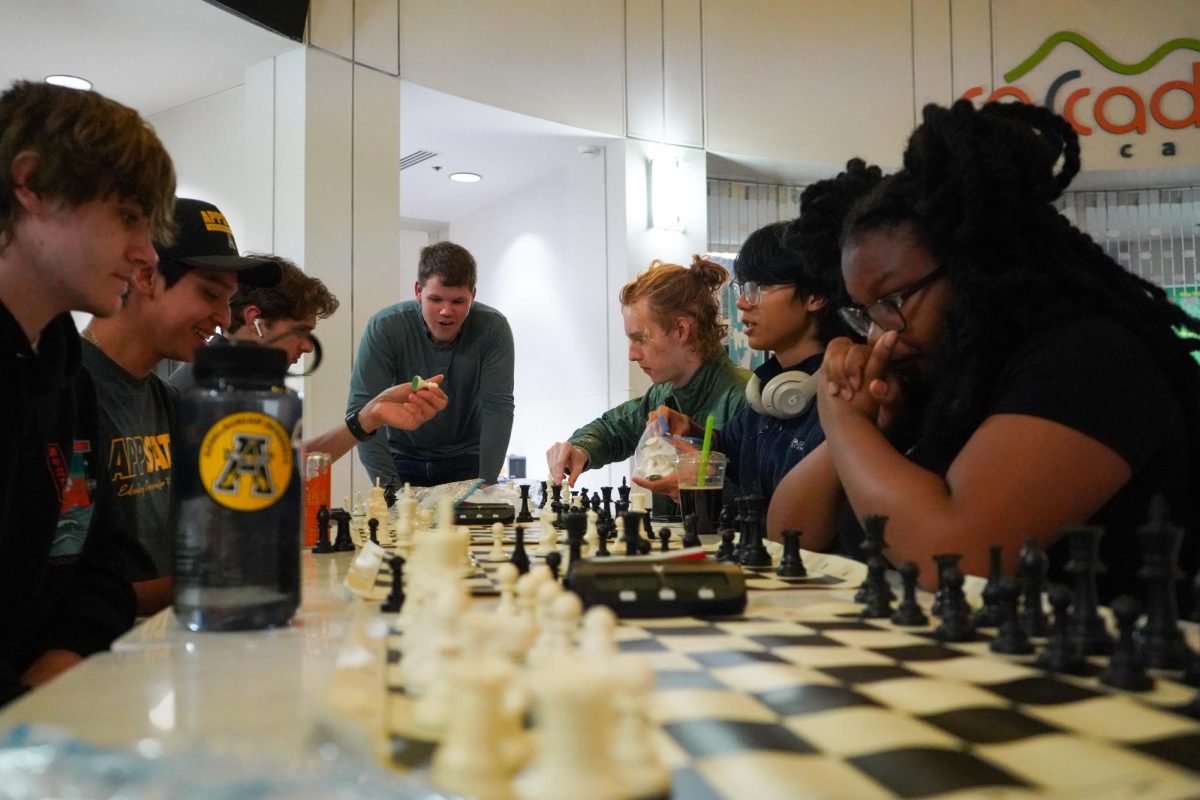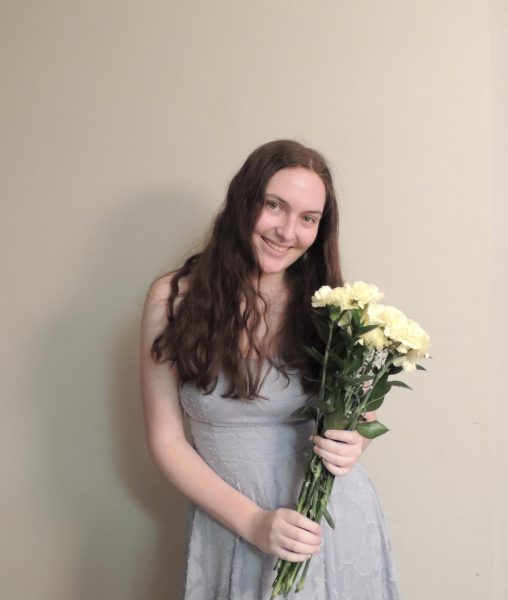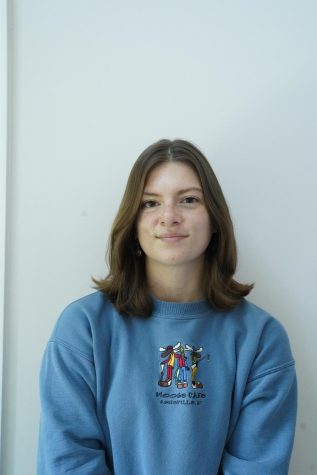With the inclusion of all skill levels, App State’s Chess Club provides space for students with a wide range of experience to practice skills for the strategic game.
“People always assume chess is a whole bunch of pressure all the time,” said R.J. Raynoe, a senior psychology major and club president. “It’s only that way if you’re completely in solitude.”
Raynoe said club members participate in a virtual Intercollegiate League through chess.com. The Fall 2024 season began Sept. 28 and will end Nov. 24. Last season, the virtual event included more than 370 teams from 180 different colleges worldwide.
Despite the games for the tournament being hosted online, Raynoe said players in the club who participate go to the same study room every weekend to make the games feel more real.
“Bringing people out, and just having a space for people to socialize; it feels nicer than just a big old group chat,” Raynoe said.
Raynoe said in previous years the chess club attended in-person tournaments, but as the club became more inclusive to all skill levels, online tournaments made more sense.
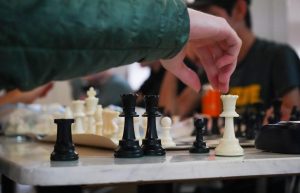
“It’s a lot harder now to get people to compete,” Raynoe said. “But I love it too, so I hope to share that with other people.”
One of Raynoe’s goals is to host small in-house tournaments to help prepare members to eventually return to in-person competitions. Part of the preparation Raynoe hopes to include is getting players used to the additional pressure of playing on their own.
“There’s a clock in in-person tournaments, but when people play casually, they haven’t seen that before,” Raynoe said.
Despite having the goal of working up to in-person tournaments, Raynoe said less-experienced students should not be discouraged from joining. In order to make sure all skill levels are accessible, Raynoe said the club matches players with others who have the same amount of experience for games.
Raynoe also said if pairs of new players need help, the more experienced members are close by to offer tips and reminders of how pieces can move on boards.
Anthony Murrieta, a sophomore cybersecurity major, said he is currently training with Raynoe to eventually become president of the club.
“Everybody helps each other out,” Murrieta said. “We teach them how to move the pieces, and what your opening should look like and how not to make really simple mistakes.”
Murrieta said something about chess he enjoys is how there are different techniques and ways to win, and he experienced one of his favorites in a recent game.
“I was completely losing, and then I pushed my pawn up and checkmated them,” Murrieta said. “It’s always super fun.”
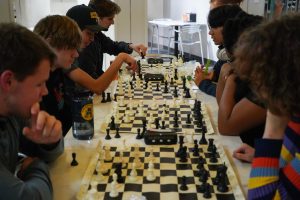
Chedaria Turner, a freshman psychology major, is a beginner-level member who joined at the start of this semester.
“I knew I wanted to join a club, I just didn’t know what club,” Turner said. “I like doing puzzles and playing games like checkers and sudoku, so I was like, why not try chess?”
Tuner said the most “puzzle-like” quality about chess is trying to think ahead about the other player’s next moves.
“It’s like I’ve gotta know you better than you know yourself,” Turner said.
Because she is not as experienced as some of the others, Turner said she decided not to participate in the online tournament but still plays during the club’s regular meeting time.
“I know at first chess kind of looks competitive,” Turner said. “It’s not really with us in the meetings. It’s just normal little, small games.”
Turner said players like Raynoe were welcoming and helpful in her process of learning. Along with pairing new people together, another teaching tactic Turner said the experienced players will often use is explaining why they made a move out loud so other players can pick up on it.
“Mostly every time I go there, there’s someone new, and I usually play with them,” Turner said. “I’ve made a lot of friends.”

